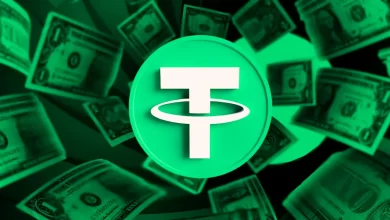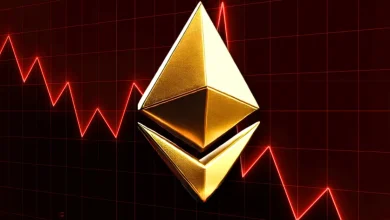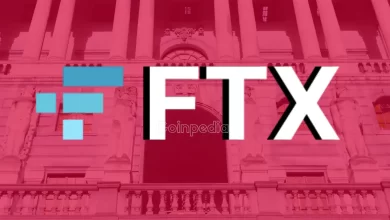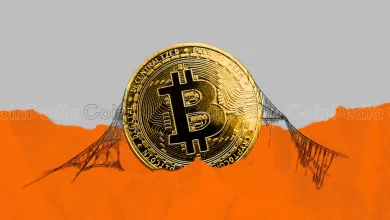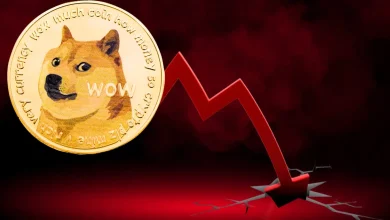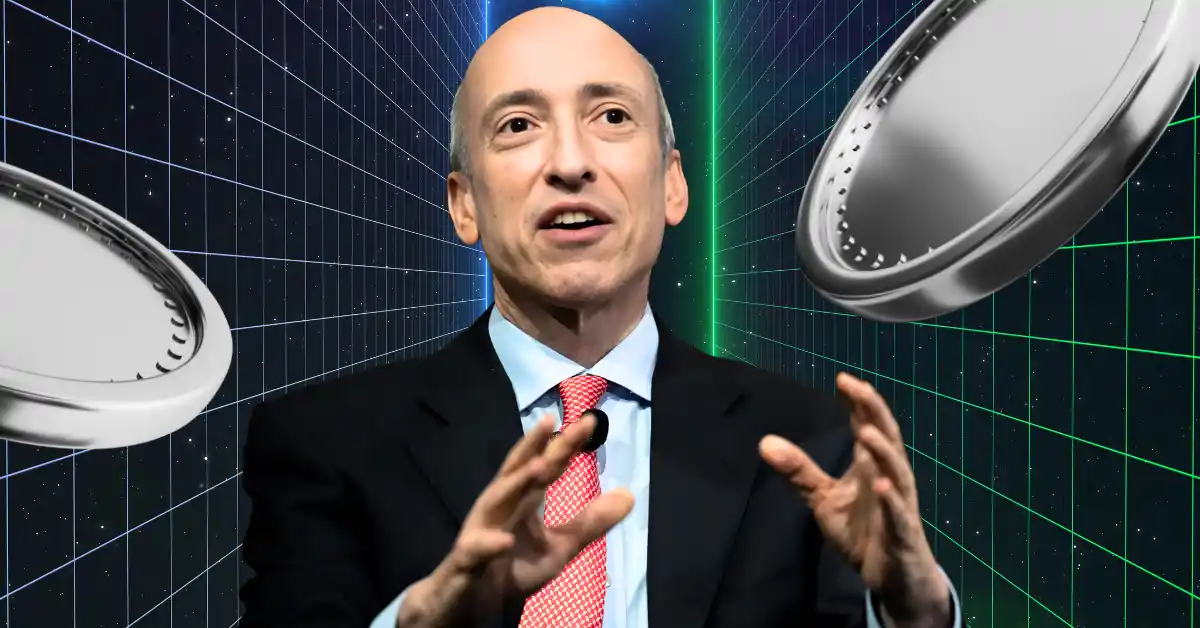
SEC Commissioner hester peirce

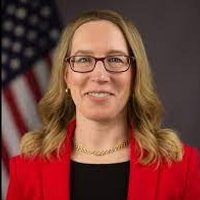 hester peirce Hester Peirce is the Commissioner of the SEC. She is known for formulating cryptocurrency regulations in the US. Hester is known as 'Crypto Mom' because she supports balanced policies that facilitate innovation and protect investors. She is also a professional lawyer and is associated with the Republican Party. With a strong background in law and economics, Hester has played a key role in creating clear regulatory frameworks for digital assets. She works closely with the Trump government and has promised clear and fair rules and regulations for cryptocurrency exchanges and blockchain projects.
Quick Facts Full Name Hester Maria Peirce Birth 1970, Ohio, US Nationality American Education Case Western Reserve University, Yale University Marital Status Unmarried Net worth To be updated Peirce provides insightful directions on securities law as it applies to blockchain technology, bridging the gap between regulatory oversight and emerging crypto innovations. Her contributions continue to influence digital finance. Her work remains vital in today's digital economy.
Hester Peirce - A Career Timeline 2018: Appointed SEC Commissioner, advocating balanced crypto regulation and innovation.
2019: Championed clear digital asset frameworks to protect investors and promote market transparency.
2020: Influenced key blockchain policy discussions and integrated crypto-friendly securities guidelines.
2021: Advanced regulatory clarity for decentralized finance, emphasizing fair market practices.
2022: Recognized as "Crypto Mom" for her leading role in shaping digital asset oversight. Awards & Recognization of Hester Peirce Year Recognizations Description 2018 Emerging Regulatory Leader Blockchain News - For her balanced approach to crypto regulation. 2019 Digital Finance Advocate Award By Crypto Briefing for developing innovative policies in digital finance. 2020 Crypto Regulation Visionary Awarded by Forbes for her forward-thinking stance on overseeing digital asset markets. 2021 50 over 50 Forbes list For her contributions to investment policies. 2022 "Crypto Mom" Recognition By Financial Times for her influential role in guiding the crypto regulatory landscape. Useful Links to Connect With Hester Peirce Platform Links X (formerly Twitter) Hester Peirce (@HesterPeirce) / X LinkedIn profile https://www.linkedin.com/in/hester-peirce SEC commissioner profile https://www.sec.gov/commissioner/hpeirce EntrepreneurInvestorFinanceCrypto and Blockchain Expert has stirred the crypto world with a bold statement – most memecoins don’t fall under SEC jurisdiction. This view stands in direct contrast to former SEC Chair Gary Gensler’s strict stance on crypto regulation. But why does this matter? Because Peirce leads the newly appointed crypto task force set up by President Donald Trump
hester peirce Hester Peirce is the Commissioner of the SEC. She is known for formulating cryptocurrency regulations in the US. Hester is known as 'Crypto Mom' because she supports balanced policies that facilitate innovation and protect investors. She is also a professional lawyer and is associated with the Republican Party. With a strong background in law and economics, Hester has played a key role in creating clear regulatory frameworks for digital assets. She works closely with the Trump government and has promised clear and fair rules and regulations for cryptocurrency exchanges and blockchain projects.
Quick Facts Full Name Hester Maria Peirce Birth 1970, Ohio, US Nationality American Education Case Western Reserve University, Yale University Marital Status Unmarried Net worth To be updated Peirce provides insightful directions on securities law as it applies to blockchain technology, bridging the gap between regulatory oversight and emerging crypto innovations. Her contributions continue to influence digital finance. Her work remains vital in today's digital economy.
Hester Peirce - A Career Timeline 2018: Appointed SEC Commissioner, advocating balanced crypto regulation and innovation.
2019: Championed clear digital asset frameworks to protect investors and promote market transparency.
2020: Influenced key blockchain policy discussions and integrated crypto-friendly securities guidelines.
2021: Advanced regulatory clarity for decentralized finance, emphasizing fair market practices.
2022: Recognized as "Crypto Mom" for her leading role in shaping digital asset oversight. Awards & Recognization of Hester Peirce Year Recognizations Description 2018 Emerging Regulatory Leader Blockchain News - For her balanced approach to crypto regulation. 2019 Digital Finance Advocate Award By Crypto Briefing for developing innovative policies in digital finance. 2020 Crypto Regulation Visionary Awarded by Forbes for her forward-thinking stance on overseeing digital asset markets. 2021 50 over 50 Forbes list For her contributions to investment policies. 2022 "Crypto Mom" Recognition By Financial Times for her influential role in guiding the crypto regulatory landscape. Useful Links to Connect With Hester Peirce Platform Links X (formerly Twitter) Hester Peirce (@HesterPeirce) / X LinkedIn profile https://www.linkedin.com/in/hester-peirce SEC commissioner profile https://www.sec.gov/commissioner/hpeirce EntrepreneurInvestorFinanceCrypto and Blockchain Expert has stirred the crypto world with a bold statement – most memecoins don’t fall under SEC jurisdiction. This view stands in direct contrast to former SEC Chair Gary Gensler’s strict stance on crypto regulation. But why does this matter? Because Peirce leads the newly appointed crypto task force set up by President Donald Trump

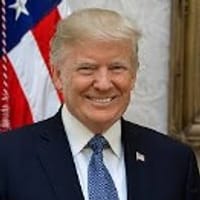 Donald Trump Donald Trump is an American former president politician, businessman, and media personality, who served as the 45th president of the U.S. between 2017 to 2021. Trump earned a Bachelor of science in economics from the University of Pennsylvania in 1968. Trump won the 2016 presidential election as the Republican Party nominee against Democratic Party nominee Hillary Clinton while losing the popular vote. As president, Trump ordered a travel ban on citizens from several Muslim-majority countries, diverted military funding toward building a wall on the U.S.–Mexico border, and implemented a family separation policy. Trump has remained a prominent figure in the Republican Party and is considered a likely candidate for the 2024 presidential election President to decide which cryptocurrencies count as securities and which don’t.
Donald Trump Donald Trump is an American former president politician, businessman, and media personality, who served as the 45th president of the U.S. between 2017 to 2021. Trump earned a Bachelor of science in economics from the University of Pennsylvania in 1968. Trump won the 2016 presidential election as the Republican Party nominee against Democratic Party nominee Hillary Clinton while losing the popular vote. As president, Trump ordered a travel ban on citizens from several Muslim-majority countries, diverted military funding toward building a wall on the U.S.–Mexico border, and implemented a family separation policy. Trump has remained a prominent figure in the Republican Party and is considered a likely candidate for the 2024 presidential election President to decide which cryptocurrencies count as securities and which don’t.
With billions of dollars in play, this debate is about the future of crypto itself. Let’s understand this.
SEC’s Position on Memecoin Regulation
Peirce’s comments suggest a shift in the SEC’s approach. Unlike Gensler, the current SEC leadership does not seem to believe it has the legal authority to regulate most memecoins.
Reports indicate that Peirce considers Congress and the Commodity Futures Trading Commission (CFTC) to be better suited to oversee memecoins instead of the SEC.
During Gary Gensler’s time as SEC chairman, the agency took a strict stance on cryptocurrencies, arguing that many digital assets qualify as securities. This led to several legal battles against major crypto exchanges, including Binance, Coinbase, and Kraken.
The Size of the Memecoin Market
Despite regulatory uncertainty, memecoins remain a major part of the crypto sector. The total memecoin market cap is $75.57 billion, making up 2.31% of the total crypto market cap of $3.27 trillion
Top five memecoins by market cap:
- Dogecoin (DOGE): $37.39 billion
- Shiba Inu (SHIB): $9.24 billion
- Pepe (PEPE): $4.02 billion
- Official Trump (TRUMP): $3.08 billion
- Bonk (BONK): $1.35 billion
In the last one year, Dogecoin has surged by 214%; Shiba Inu by 68%; Pepe by 850%; and Bonk by 41.4%.
However, in the last seven days, prices have fallen. DOGE has dropped by 4.5%; SHIB by 2%; PEPE by 6.5%; TRUMP by 14.5%; and BONK by 6%.
- Also Read :
- Big News: Novogratz Says Bitcoin Could Appear on U.S. Government Balance Sheets in Six Months
- ,
Memecoin Regulation: Concerns and Challenges
While memecoins continue to grow in popularity, critics warn about extreme volatility and a lack of regulation. Many believe the market is vulnerable to fraudulent projects and pump-and-dump schemes.
Recently, a memecoin investor filed a lawsuit against Pump.Fun, a Solana-based platform that allows users to create and trade memecoins. Backed by US law firms Wolf Popper and Burwick, the lawsuit accuses Pump.Fun of violating securities laws by offering highly volatile memecoins. This just shows the uncertainty in the industry.
Hester Peirce’s position – that most memecoins are not securities – marks a shift from Gary Gensler’s regulatory approach. Meanwhile, the memecoin market continues to expand, but concerns over fraud and volatility persist.
The memecoin market remains a high-risk, high-reward game. Let’s wait to see what comes next.
Never Miss a Beat in the Crypto World!
Stay ahead with breaking news, expert analysis, and real-time updates on the latest trends in Bitcoin, altcoins, DeFi, NFTs, and more.


